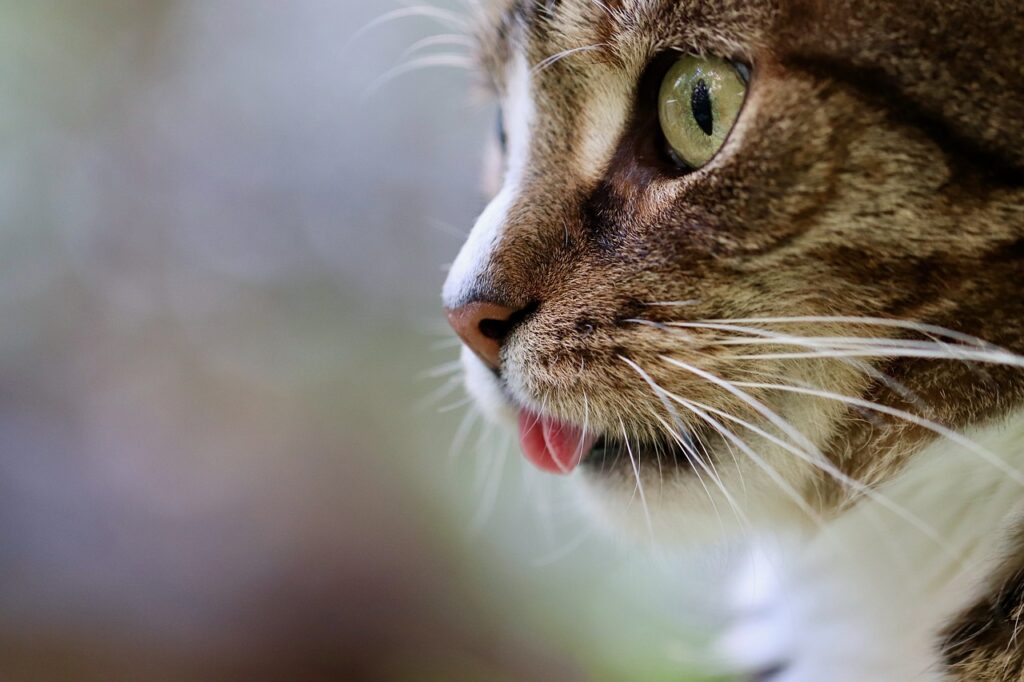Can Cats Eat Chips? – No, They can’t
Ever wondered if your kitty can nibble on those crispy chips you’re munching? The direct answer is No. Cats should not eat chips as they offer no nutritional value to a feline’s diet and contain high levels of salt and fat, which can be harmful. Chips are also sometimes flavored with onion or garlic powder, which are toxic to cats. It’s essential to consider that a cat’s diet requires specific nutrients for their health, and chips simply don’t make the cut.
Can Kittens Eat Chips?
The answer here is also a clear No. In fact, it’s even more crucial that kittens, who are still growing and developing, do not consume chips. Their bodies are more sensitive, so introducing such unhealthy snacks can lead to more immediate health problems and negatively affect their growth and development.
Things to consider when feeding chips to kittens?
Given that kittens should not eat chips, there are several things to consider. Their digestive systems are not equipped to handle the high fat and salt content, and the artificial flavors and preservatives found in chips can lead to digestive issues and long-term health concerns. Moreover, kittens need a diet rich in proteins, vitamins, and amino acids, which chips do not provide.
Nutritional Benefits of Chips for Cats – Why Cats can’t have Chips
There Are No Real Benefits
Chips do not contain any necessary nutrients that cats need. They lack the appropriate amount of proteins, vitamins, and minerals that a cat’s diet should have. Instead, they are high in carbohydrates and fats, which can lead to obesity and other health issues in cats if consumed regularly.
Potential Allergies: Can Cats Be Allergic to Chips?
Cats can be intolerant or allergic to certain ingredients in chips. While not common, it is possible, especially if the chips contain artificial colors, flavors, or preservatives. Anything outside a cat’s regular diet can potentially cause an allergic reaction.
Symptoms of Chip Allergies in Cats
- Itchy skin: Look for your cat scratching more than usual.
- Gastrointestinal upset: Signs like vomiting or diarrhea can indicate a reaction.
- Respiratory issues: If your cat is sneezing or coughing, it might be a reaction to an allergen.
What to Do If Your Cat Shows Symptoms?
- Consult a vet: Any sign of allergies should be checked by a professional.
- Food elimination: Remove chips or any new food items from their diet.
- Medication: Your vet may prescribe antihistamines or steroids for relief.
Recommended Amount: How Much Chips Can a Cat Consume?
It’s recommended that cats avoid eating chips completely. Even a small amount can be unhealthy because of the salt, fat, and seasonings, which are not suitable for feline consumption.
Things to Consider When Feeding Chips to Cats
Since feeding chips to cats is not recommended, it’s vital to consider that doing so can lead to potential health risks such as obesity, diabetes, and other diet-related diseases. It’s always best to stick to a diet formulated for cats.
How to Feed Chips to Cats: A Quick Guide
As the earlier sections mentioned, feeding chips to cats is not advisable. Nonetheless, cats can enjoy other cat-friendly treats that are more suited to their dietary needs. Let’s focus on safer occasional treats you can offer to your kitty.
Cat-Safe Snack 1
A small piece of cooked chicken or turkey, free of any seasoning or fats, can be a delightful treat for cats.
Cat-Safe Snack 2
Consider giving your cat a small portion of plain, cooked fish like salmon or tuna occasionally, ensuring no bones or seasoning.
Cat-Safe Snack 3
Pureed pumpkin without additives is a healthy option that can help with a cat’s digestion.
Conclusion
In conclusion, while chips are a tempting snack for humans, they’re not suitable for cats. It’s best to stick with a balanced diet tailored to a cat’s specific nutritional needs and occasionally indulge them with cat-safe alternatives. Always consult your veterinarian for guidance on what is healthiest for your feline friend.



